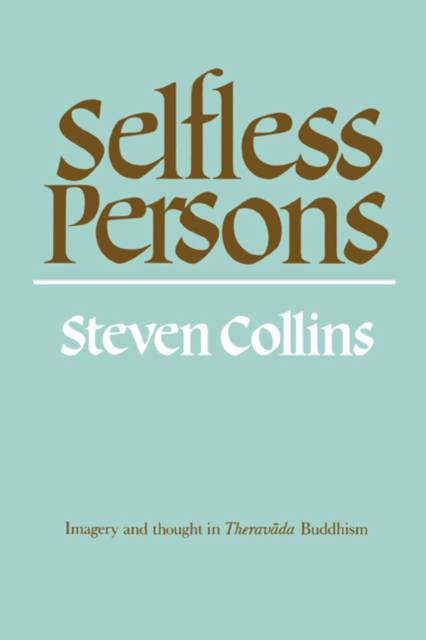
- Afhalen na 1 uur in een winkel met voorraad
- Gratis thuislevering in België vanaf € 30
- Ruim aanbod met 7 miljoen producten
- Afhalen na 1 uur in een winkel met voorraad
- Gratis thuislevering in België vanaf € 30
- Ruim aanbod met 7 miljoen producten
Zoeken
€ 50,45
+ 100 punten
Uitvoering
Omschrijving
This book explains the Buddhist doctrine of annattá ("not-self"), which denies the existence of any self, soul, or enduring essence in man. The author relates this doctrine to its cultural and historical context, particularly to its Brahman background. He shows how the Theravada Buddhist tradition has constructed a philosophical and psychological account of personal identity on the apparently impossible basis of the denial of self. Although the emphasis of the book is firmly philosophical, Dr. Collins makes use of a number of academic disciplines, particularly those of anthropology, linguistics, sociology, and comparative religion, in an attempt to discover the "deep structure" of Buddhist culture and imagination, and to make these doctrines comprehensible in terms of the western history of ideas.
Specificaties
Betrokkenen
- Auteur(s):
- Uitgeverij:
Inhoud
- Aantal bladzijden:
- 336
- Taal:
- Engels
Eigenschappen
- Productcode (EAN):
- 9780521397261
- Verschijningsdatum:
- 29/11/1990
- Uitvoering:
- Paperback
- Formaat:
- Trade paperback (VS)
- Afmetingen:
- 154 mm x 231 mm
- Gewicht:
- 498 g

Alleen bij Standaard Boekhandel
+ 100 punten op je klantenkaart van Standaard Boekhandel
Beoordelingen
We publiceren alleen reviews die voldoen aan de voorwaarden voor reviews. Bekijk onze voorwaarden voor reviews.








